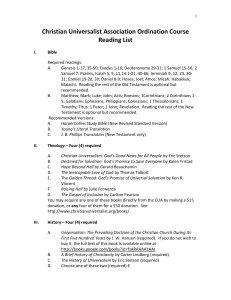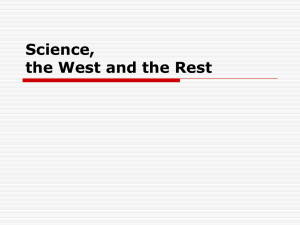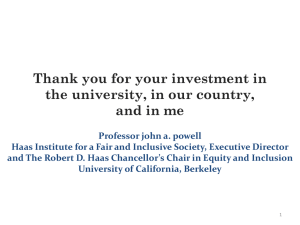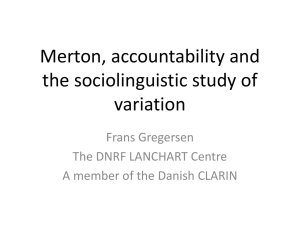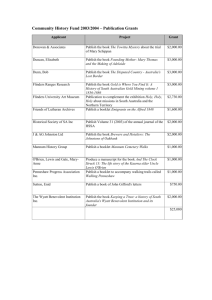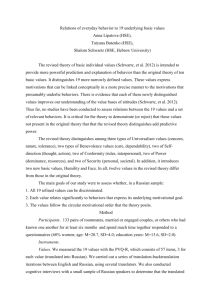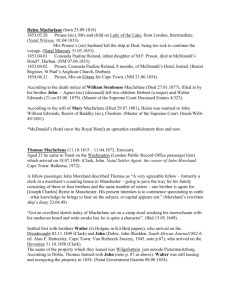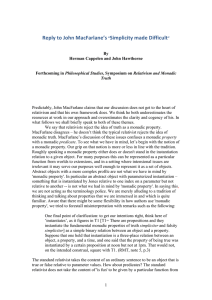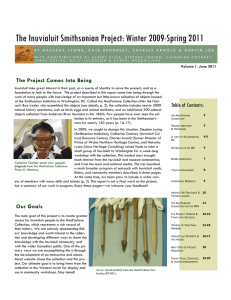Research ethics abstract
advertisement
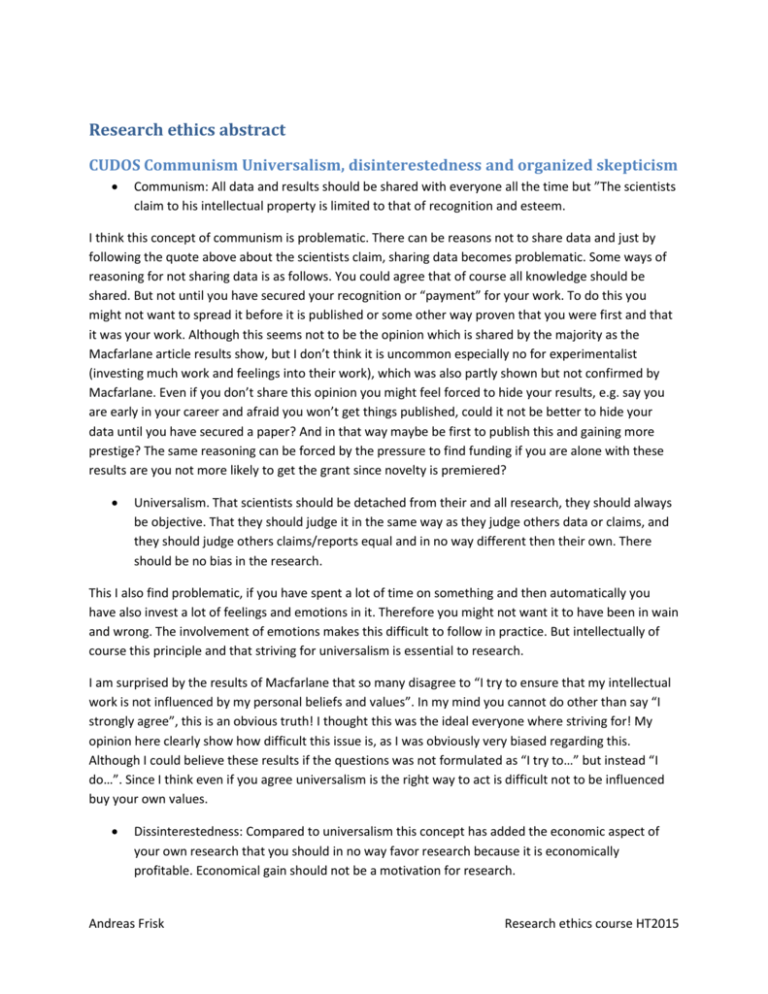
Research ethics abstract CUDOS Communism Universalism, disinterestedness and organized skepticism Communism: All data and results should be shared with everyone all the time but ”The scientists claim to his intellectual property is limited to that of recognition and esteem. I think this concept of communism is problematic. There can be reasons not to share data and just by following the quote above about the scientists claim, sharing data becomes problematic. Some ways of reasoning for not sharing data is as follows. You could agree that of course all knowledge should be shared. But not until you have secured your recognition or “payment” for your work. To do this you might not want to spread it before it is published or some other way proven that you were first and that it was your work. Although this seems not to be the opinion which is shared by the majority as the Macfarlane article results show, but I don’t think it is uncommon especially no for experimentalist (investing much work and feelings into their work), which was also partly shown but not confirmed by Macfarlane. Even if you don’t share this opinion you might feel forced to hide your results, e.g. say you are early in your career and afraid you won’t get things published, could it not be better to hide your data until you have secured a paper? And in that way maybe be first to publish this and gaining more prestige? The same reasoning can be forced by the pressure to find funding if you are alone with these results are you not more likely to get the grant since novelty is premiered? Universalism. That scientists should be detached from their and all research, they should always be objective. That they should judge it in the same way as they judge others data or claims, and they should judge others claims/reports equal and in no way different then their own. There should be no bias in the research. This I also find problematic, if you have spent a lot of time on something and then automatically you have also invest a lot of feelings and emotions in it. Therefore you might not want it to have been in wain and wrong. The involvement of emotions makes this difficult to follow in practice. But intellectually of course this principle and that striving for universalism is essential to research. I am surprised by the results of Macfarlane that so many disagree to “I try to ensure that my intellectual work is not influenced by my personal beliefs and values”. In my mind you cannot do other than say “I strongly agree”, this is an obvious truth! I thought this was the ideal everyone where striving for! My opinion here clearly show how difficult this issue is, as I was obviously very biased regarding this. Although I could believe these results if the questions was not formulated as “I try to…” but instead “I do…”. Since I think even if you agree universalism is the right way to act is difficult not to be influenced buy your own values. Dissinterestedness: Compared to universalism this concept has added the economic aspect of your own research that you should in no way favor research because it is economically profitable. Economical gain should not be a motivation for research. Andreas Frisk Research ethics course HT2015 I think today it is difficult to agree on the disinterestedness idea at least not fully. Since I want to have a salary I want to continue doing research hence I need funding, and thereby I am interested in the results. And since I don’t want to do something boring all day I want to do something I am interested in, hence I am interested. Also if it is possible to earn money from research you could argue why should that be bad? Earning money from research discoveries can mean employment of people and it can lead to money for the state benefiting all. But of course the other part of disinterestedness which is that motivation for research should purely be from wanting to find the truth will help maintain science objective. This seems to be the values held by the majority of scientists according to Macfarlane. Organized skepticism. You should be skeptic about your own work, until all facts have been established. Don’t draw conclusions which stretch beyond the evidence. And be skeptical about current conventions. This I think I live by without thinking this is probably a personal trait. For others which don’t have this personality I would guess the eagerness and happiness of their own results can be difficult quench sometimes. I have also noticed my skepticism towards others increase as I become more experienced and realized problems and difficulties in the work. But as experience grows it will probably be difficult to be skeptic of the conventions, so experience seems to be a double edged sword in this aspect. Negative results The inflation of positive results and the impossibility to publish negative results I think is very interesting. In my filed if I would get a negative result, say I can’t grow a sample in a way I want. This will never be publishable. The answer from the reviewers would simply be you are crappy in the lab, your labskills are not good enough, you were not careful enough, and that is why you failed. But this is problematic, how can we prove that something is not doable? How can we prove that someone else’s results are false? If I can’t reproduce their samples, I would still get the same answer from the reviewers; my labskills are not good enough. A false result will stay true forever. This I think is sad. There are so many things which would be good to publish so that people don’t keep trying doing things which is not possible. I have heard a TED talk (can’t remember who was talking) about this problem in medicine and how the consequence is that patients are continuously exposed to treatments in different studies which other studies have already proved is ineffective, but since this was a negative result they did not publish this. I think this is very sad. Also being able to publish negative results would be good for people like PhD students, how many PhD students are there not which ended up with a project that was not solvable and had difficulties finishing their thesis since they got not results. If they could have published their negative results this might not have been a problem. Andreas Frisk Research ethics course HT2015
